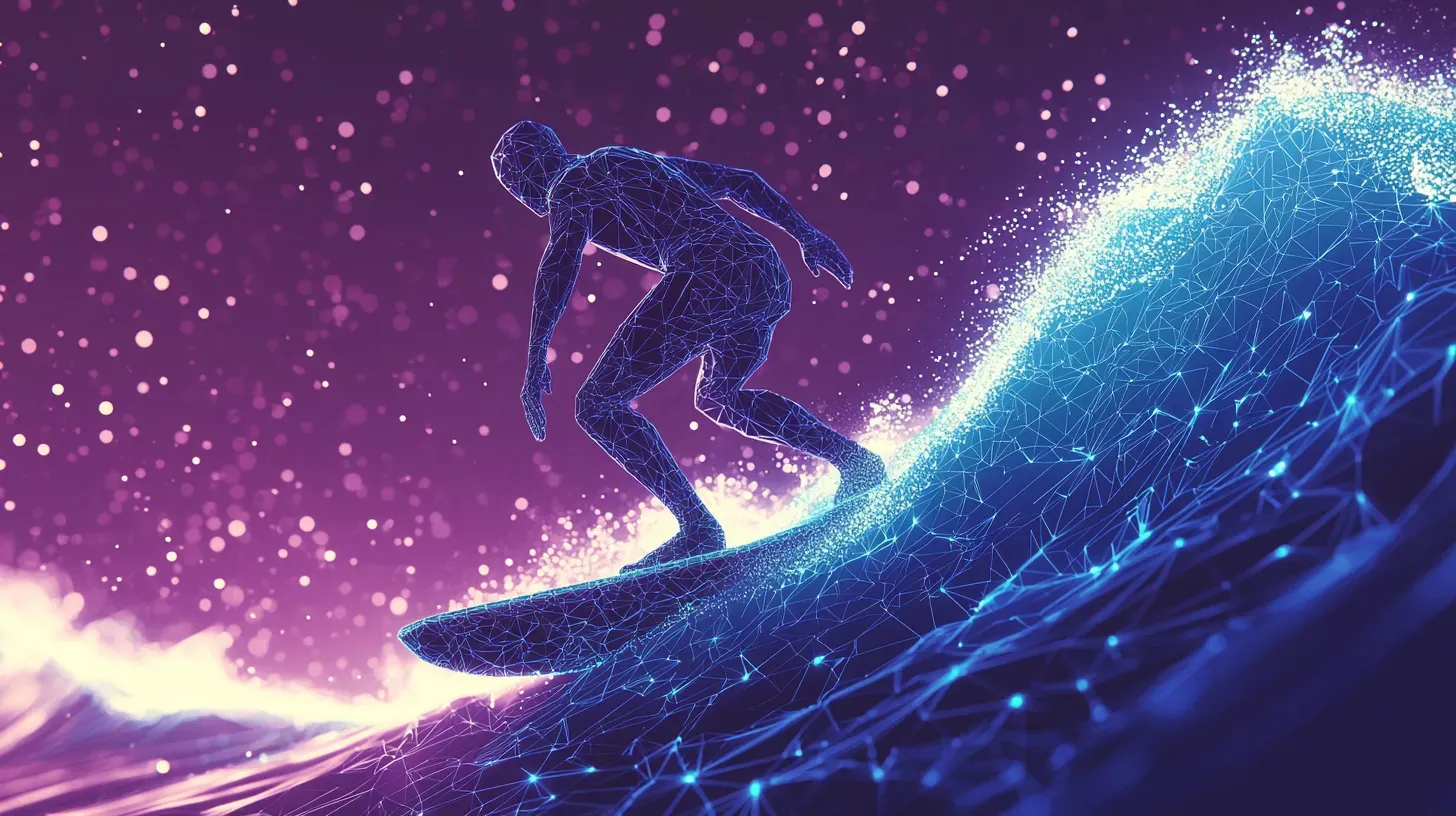Cycling 14,000 km Taught Me the Secret to Thriving in a Rapidly Changing World
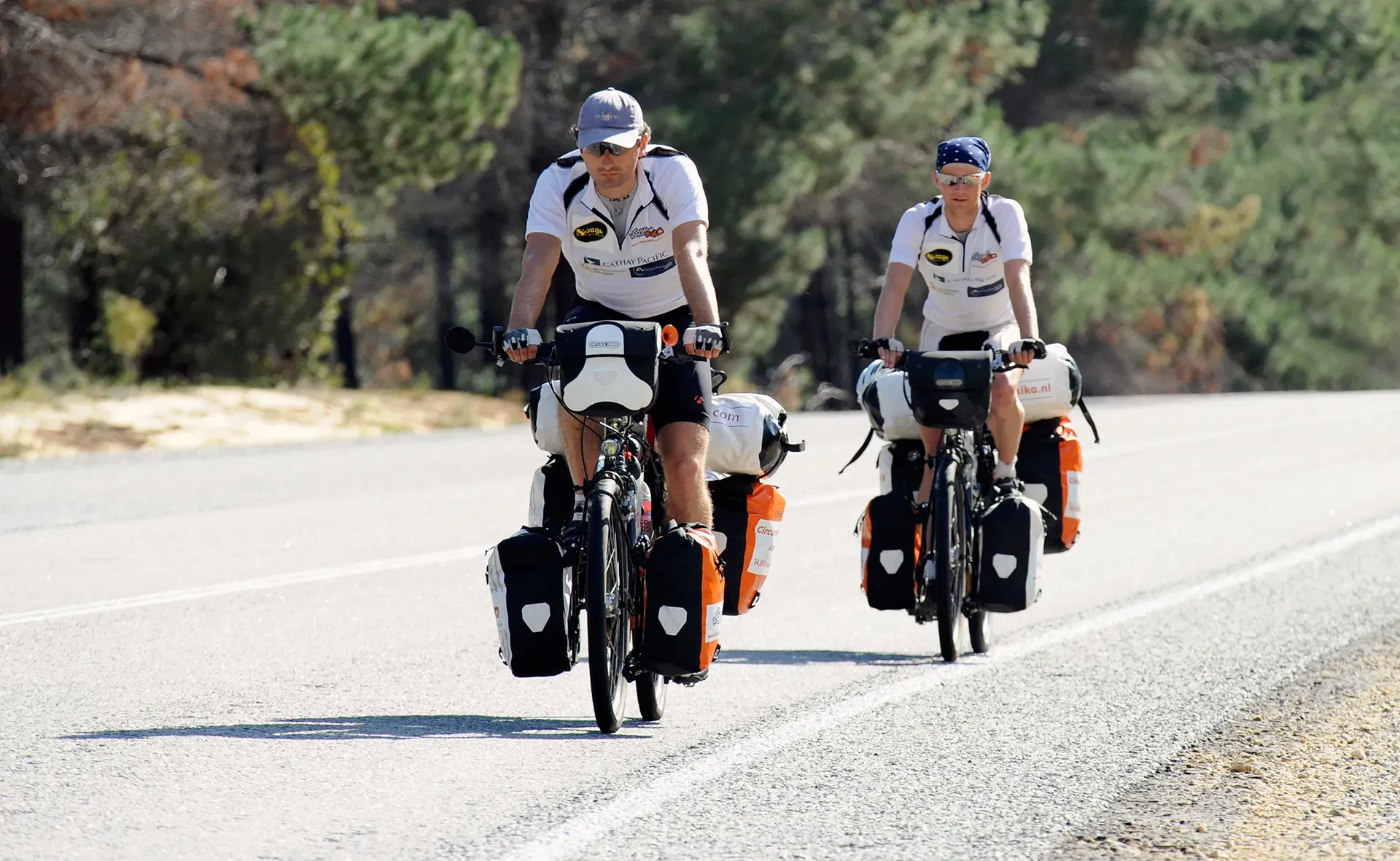
The heat was oppressive, the sun an unrelenting force hanging overhead as we pedaled through the vast, dusty expanse of the Australian outback. The road ahead stretched endlessly, shimmering in the distance like a mirage. Each pedal stroke felt heavier than the last, as if the wind itself was determined to push us back. The landscape was empty, save for the occasional rustle of dry grass or the rumble of a passing truck that would whip up clouds of red dust in its wake.
We had been on the road for weeks by this point, but this day felt particularly grueling. It was Day 37 of our journey. My legs ached, my shoulders were stiff, and the saddle had become an instrument of torture I had never anticipated. Reinier, my friend and companion on this audacious trip, was riding beside me, his expression set in determination despite the exhaustion etched on his face.
There was no support crew, no backup waiting in the wings. It was just the two of us, battling the elements and our own limits. The vastness of Australia stretched in every direction, and in moments like this, it felt like we were insignificant specks, barely moving against the sheer scale of it all.
The Beginning
In 2011, we set out to do the impossible—cycle 14,122 kilometers around Australia in 100 days. From Cairns to Cairns, in a great anti-clockwise loop, covering every type of terrain imaginable, from the scorching desert plains to the windswept coastal roads. The goal? To raise €25,000 for the Children’s Cancer Foundation (KiKa).

But as the kilometers stretched on and the road ahead blurred with fatigue, this trip had morphed into something much more profound. It wasn’t just about cycling anymore. It was about resilience, perseverance, and pushing beyond the limits of what I thought I was capable of. In many ways, it was the perfect metaphor for life—and for the work I would later come to do.
Looking back now, years later, I see this journey as a precursor to my role as a futurist. At the time, I hadn’t yet embraced the label. I hadn’t yet stood in front of business leaders and governments to talk about AI, blockchain, or the metaverse. But the seeds of that future were planted here, in the outback, where I learned what it meant to endure, adapt, and stay focused on a long-term vision, no matter how overwhelming the challenges seemed.
The decision to cycle around Australia wasn’t born from a sudden flash of inspiration. It was the culmination of years of restlessness, a need to do something meaningful, to challenge myself in a way that would leave a lasting impact. I had always been drawn to big ideas and bold actions, but the routine of everyday life had a way of smothering those impulses.
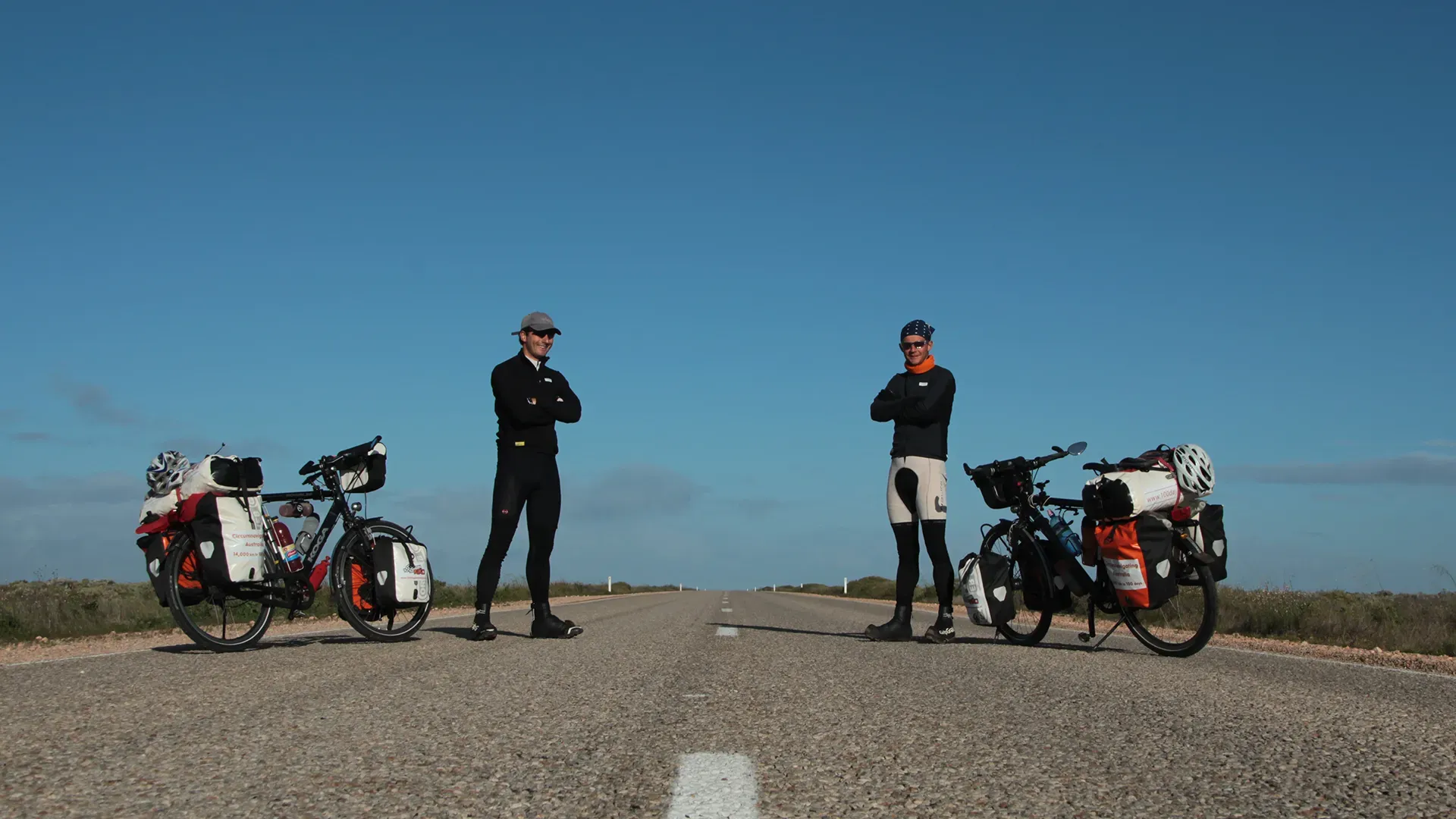
Then, one night, it all changed. Like many great adventures, it all began in a pub. Over a couple of beers, Reinier and I joked about how amazing it would be to cycle around Australia. At first, it was just that—a dream, something to laugh about. But the more we talked, the more serious it became. We found ourselves drawn to the challenge, to the idea of pushing ourselves in ways we had never imagined. And then, in one of those moments of clarity (or perhaps madness) that only come after a few drinks, we shook hands and agreed to make it happen.
From that moment on, there was no turning back. Reinier and I began planning the trip in earnest, but our preparations were anything but smooth. The early days of planning were filled with excitement but also a fair amount of procrastination. We would meet every Tuesday for what we dubbed “Ozzie Tuesday,” ostensibly to plan the logistics of the trip, but more often than not, we’d end up in a local café, fantasizing about the adventure rather than working on the nitty-gritty details. The sheer magnitude of the task ahead of us—cycling around an entire continent—felt surreal, and we often found ourselves lost in daydreams rather than practicalities.
We started training slowly, almost naively. Our first ride, a modest 40 kilometers to Hoek van Holland, The Netherlands, left us exhausted and sore for days. It was a humbling experience, one that revealed just how unprepared we were for the journey ahead. But as the months went on, we built up our stamina, cycling longer and longer distances. We upgraded our bikes, got sponsorships from various companies, and slowly, the dream became a reality.
The Journey: From Triumphs to Trials
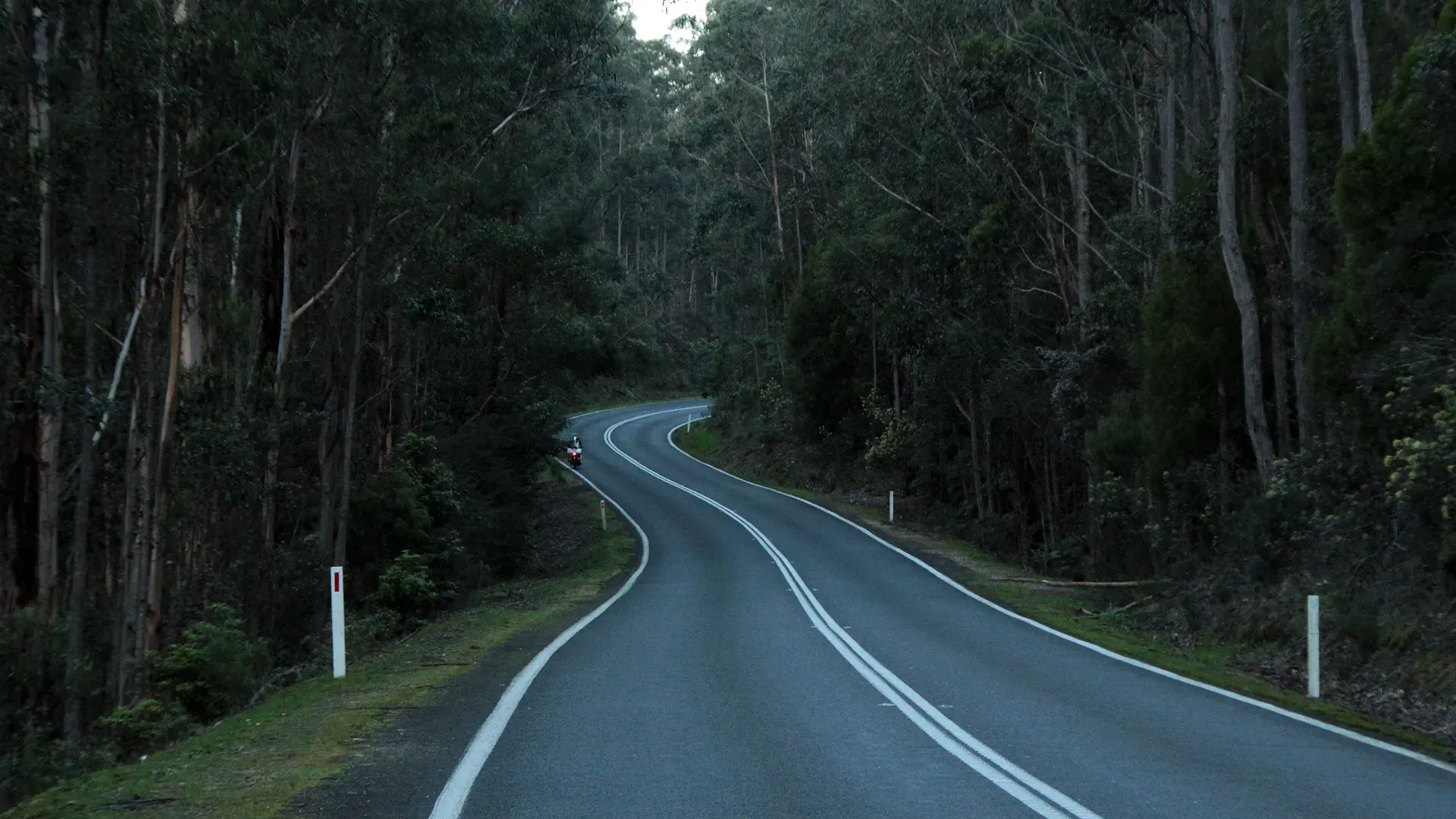
Every day on the road was a test of endurance—physically, mentally, and emotionally. Some days were blissful, like gliding through the lush rainforests of Queensland, where the air was thick with the scent of eucalyptus and the road ahead seemed to invite us forward. Other days were pure agony, battling headwinds that made it feel like we were moving backwards, or riding under the relentless sun that turned the road into a sweltering oven accompanied by dozens of flies licking the sweat off your face.
The Nullarbor Plain was one of the most daunting stretches. It is a vast, desolate expanse of nothingness—no towns, no people, just us and the open road for over 1200 kilometers. We had been warned about its harshness, but nothing could have prepared us for the reality. The heat was unbearable, the sun beating down on us without mercy. As we pedaled into the heart of the desert, the heat shimmered off the asphalt, creating mirages in the distance. Our water supply was limited, and every pedal stroke felt like a battle. At one point, we were miles from anywhere when Reinier’s tire went flat, the third time that day. The frustration was palpable, the kind that creeps into your bones and makes you question why you ever started in the first place.
But then something incredible happened. As we were bent over, struggling to fix the tire, a car pulled up beside us. The driver leaned out with a smile, offering us water and snacks. “You boys look like you could use a break,” he said. It was a simple gesture, but in that moment, it felt like salvation. Acts of kindness like this became a recurring theme on our journey. Strangers, seeing us toiling away on the side of the road, would stop to offer help—cookies, water, words of encouragement. These moments reminded me that no matter how isolated or difficult the journey, there was always support to be found, often from the most unexpected places.
It was humbling to see how willing people were to help two strangers on bicycles, simply because they wanted to be part of our journey. It’s a lesson I carry with me to this day—the power of community, of helping each other through tough times. In a world that often feels divided, these moments of human connection reminded me that we’re all in this together.
The Mental Game

It wasn’t just the physical challenges that tested us. There were times when the sheer monotony of the road—hours upon hours of pedaling with no end in sight—wore us down mentally. We had to dig deep, relying on each other for motivation. Reinier and I would joke, sing, or simply ride in silence, knowing that just being there for each other was enough to keep going.
At one point, however, I remember feeling utterly defeated. My body screamed for rest, my mind was clouded with doubt. Why had we taken on this impossible challenge? What were we trying to prove? But then, Reinier’s voice cut through the fog: “We’ve come this far. We’re not stopping now.” His words jolted me back to the present, reminding me of why we had started this journey in the first place.
That day, I learned a powerful lesson about perseverance. When you’re faced with overwhelming odds, when every fiber of your being tells you to quit, it’s the small, determined steps forward that make all the difference. One pedal stroke at a time, we pushed through the desert, and by the time we reached the other side, something inside me had shifted. I realized that endurance wasn’t just about physical strength—it was about mental fortitude. And that realization would later shape the way I approached my work in the tech world, where the pace of change is relentless, and the challenges are often overwhelming.
As the kilometers stacked up, so did the lessons. This trip wasn’t just about cycling; it was a crash course in resilience, adaptability, and focus. Day after day, we had to adjust our plans on the fly. We learned to be resourceful, to find creative solutions to problems, whether that meant fixing a broken chain in the middle of nowhere or rerouting our path when a storm washed out the road.
These moments of adaptation mirrored the kind of agility that businesses need to survive in today’s fast-changing world. Just as we had to adapt to the unpredictability of the road, organizations must continually evolve, upskilling their teams and pivoting their strategies to stay relevant in a rapidly shifting landscape.

One of the biggest lessons was about discipline. We had to get up at 6 a.m. every day, regardless of how sore or tired we were from the previous day’s ride. There was no room for slacking off; the road ahead demanded consistency and focus. It reminded me of a truth I would later come to see in my professional life: with discipline, focus, and perseverance, you can achieve anything.
Flexibility was equally crucial. No matter how well we planned, things never went exactly as expected. And those who can’t adapt to change are the ones who get left behind.
I learned to embrace discomfort, to push through the pain and the fatigue because I knew that each day brought us closer to our goal. Every challenge became an opportunity to grow, to prove to myself that I could endure more than I ever thought possible.
Finally, vision kept us going. You don’t set out to cycle around a continent without a clear goal in mind. For us, that goal was reaching the finish line in Cairns, but it was more than just a destination. It was the culmination of a dream, the fulfillment of a promise we had made to ourselves and to the children we were riding for. That long-term vision kept us going when the road got tough, just as a clear and ethical vision is essential for any leader navigating the complexities of technological disruption.
The Final Push
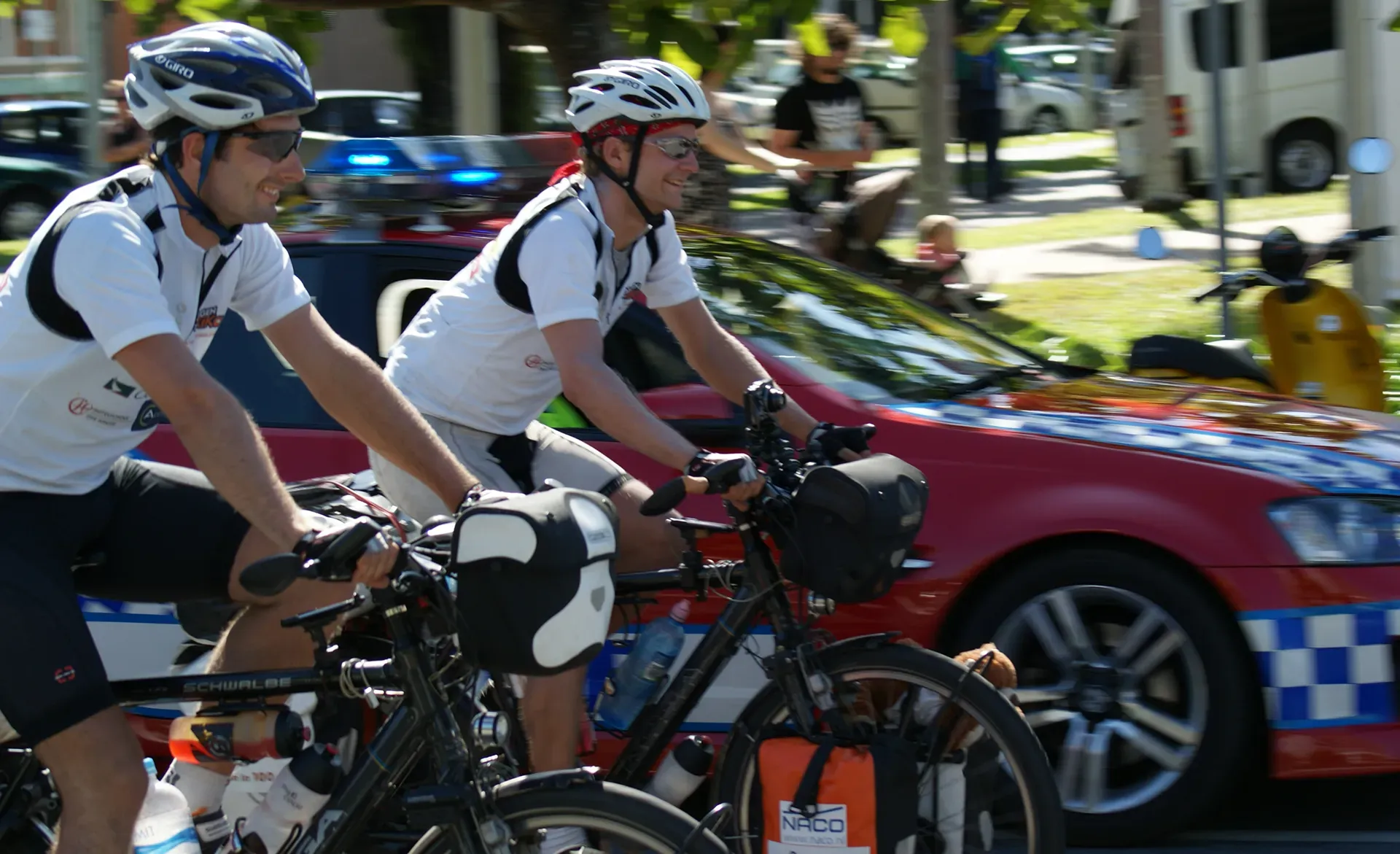
As we neared the end of our journey, the anticipation grew. We had been cycling for 99 days, covering over 14,000 kilometers, and now, on the final day, we were just hours away from completing the challenge. The finish line was in sight, but the emotions were mixed. There was the overwhelming joy of knowing we had made it but also a sense of sadness that this life-changing journey was coming to an end.
On the last day, we rode into Cairns with a police escort, followed by fellow cyclists who had joined us for the final stretch. As we approached the finish line, we were greeted by cheering crowds, family, friends, and even local officials. The sense of accomplishment was indescribable. We had done it—we had cycled around Australia in 100 days, raising nearly €25,000 for KiKa.
As we rode the final kilometers, I reflected on the journey. The daily rhythm of waking up, packing our gear, and hitting the road was behind us. We had crossed a continent, conquered the elements, and achieved something few others had done. It wasn’t just the physical feat that filled me with pride—it was everything we had learned along the way. The road had taught me that with the right mindset, anything is possible. Focus, discipline, perseverance, and a positive attitude had carried us through the toughest days. But as we pedaled the final miles, I couldn’t shake the feeling that this was only the beginning.
This cycling trip was one of the most transformative experiences of my life. At the time, I didn’t fully realize how it would shape my future, but looking back now, I see the parallels between this journey and the world I work in today. Whether you’re cycling through the Australian outback or navigating the complexities of emerging technologies, the principles remain the same: focus, discipline, perseverance, and adaptability are the keys to success. The world is changing at an exponential pace, with risks and challenges constantly appearing, and the only way to thrive in it is to be ready to embrace that change—just as Reinier and I embraced every twist, every challenge, and every setback on the road.
The Road to Tomorrow
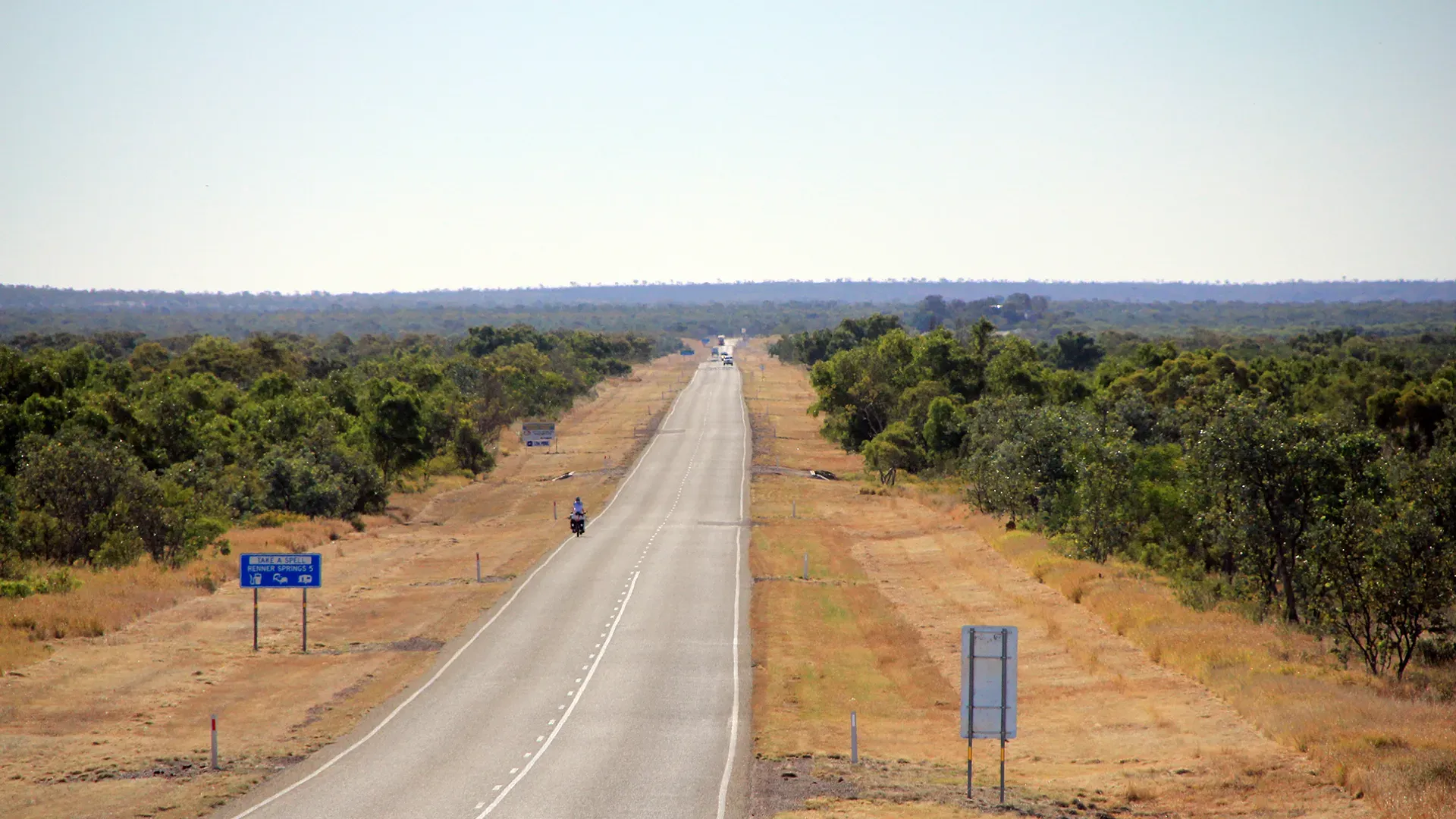
Looking back now, it’s clear how much that cycling trip shaped my understanding of the future, how I think about transformation, and how I help others navigate the complexities of a world that is constantly changing.
I now see this cycling journey as more than just an adventure—it was a crucible that forged the mindset I carry with me today. It was a test of endurance, a lesson in resilience, and a blueprint for how to navigate the complexities of life. It was a journey of transformation—one that I didn’t fully grasp at the time but would come to understand in the years that followed.
The journey taught me that success, whether in personal challenges or business, doesn’t come from brute strength alone. It comes from being resourceful, from seeing every obstacle as an opportunity, and from working together with those around you. Reinier and I didn’t achieve this alone. We had each other, we had the support of strangers, and we had a shared vision that carried us through even the darkest moments.
The road ahead for all of us is filled with uncertainty. We are living in an era of exponential change, where technologies like AI, spatial intelligence, and quantum computing are reshaping industries and our society at an unprecedented pace. The future isn’t a destination—it’s a journey. And the only way to thrive is to keep moving forward, one pedal stroke at a time.
In the same way that we cycled one day at a time, transforming small efforts into a massive achievement, I believe that the future will be built by those who are willing to take small, exponential steps forward—day by day, decision by decision. And that’s the story I’m here to tell: not just about the future we can predict, but the future we can build together.




